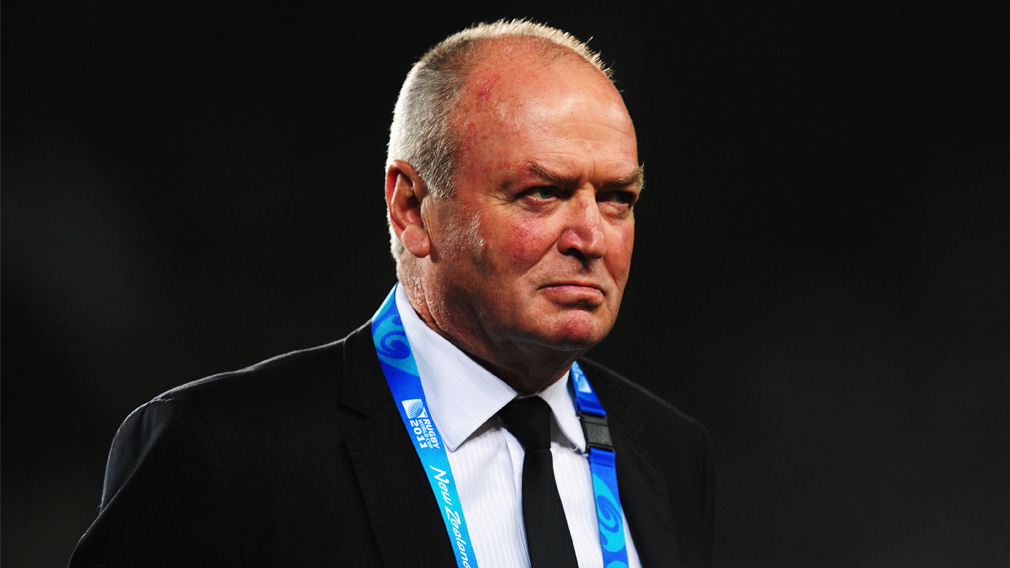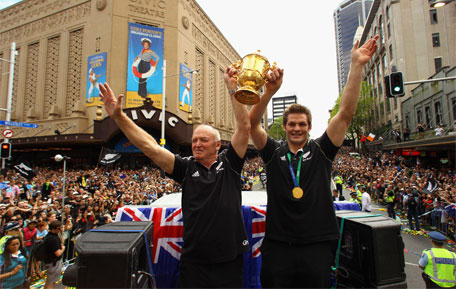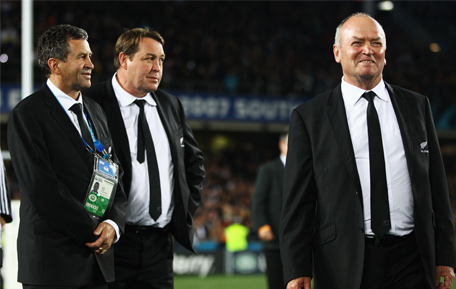All Blacks leader on highs, lows and how to win

Sir Graham Henry, pictured in 2011 when he coached the winning All Blacks side at the Rugby World Cup Final, says he realised in 2001 unless he changed he would "die in the game". (Stu Forster/Getty Images)
To prove that failure is a learning experience, look no further than former All Blacks coach Sir Graham Henry.
It was 2001 and Henry was on a continually upwards career trajectory, known as the Great Redeemer of a newly competitive Welsh rugby team before being offered the chance to step up further and lead the combined British and Irish Lions team to tour Australia.
The powerful Lions promptly blew Australia away in the first Test, validating Henry’s appointment and leadership. But within weeks, the home team had clawed their way back to a famous 2-1 series victory, and delivered a crushing blow to the previously ascendant Henry.
Graham Henry discusses how leaders are developed.
It wouldn’t be his last, in 2007 overseeing rugby-mad New Zealand’s worst ever result in a World Cup that almost cost him his job.
“[Back in 2001] I coached like everybody else coached, I think, and that was it was a coach driven team,” Henry said of his iron-grip on the team’s structure and direction at the time.
“But I realised in 2001 … unless I changed, I was going to die in the game.
“And I wanted to survive and I knew that if I didn't change the way I did things, I wasn't going to survive.
“I think it's about constant change, constant improvement. Trying to get better … It took me a while to learn that.”
Learn, he did, and by 2011, the one-time schoolteacher affectionately known as Ted who admits to previously leading with some “arrogance”, delivered his home country of NZ their longed for trophy as the world champion rugby team in 2011, 24 long years after they had first claimed the title.

All Black Coach Graham Henry (left) and Captain Richie McCaw hold up the Webb Ellis Cup during the New Zealand All Blacks 2011 IRB Rugby World Cup celebration parade. (Photo by Phil Walter/Getty Images)
Now retired with success a byword for his career, Henry’s insights resonate with many challenges facing managers, from sport to business, amid rapid and major changes across the likes of technology, science and communications.
He says that upon reflection of a more durable path to success after returning to NZ in 2003 and taking a step back from the role of head coach, the realisation that leadership did not mean sole direction from the balcony and that he must adjust from being a director to a facilitator of team culture came through.
These reflections were quickly put to use when claiming the job he’d long coveted, that of All Blacks head coach, in 2004, surrounding himself with peers rather than people who would traditionally be seen as subordinates.
“The more you can get the best people you can get available alongside you, the better it's going to be. So I strived to make sure I had the best and spent a lot of time doing that,” Henry tells Westpac Wire, after a recent presentation to some of the bank’s employees.
“We were a trio. We were on the same level. I was named as head coach but we were three co-coaches really and that's how I worked it. So we went to a press conference or had to do anything for the team, it was always the three of us doing it together rather than head coach by himself.”
Joining Henry were his Wales replacement Steve Hansen and former All Blacks coach Wayne Smith. Overseeing his coaching team, the “mentor for the mentors”, was legendary New Zealander Sir Brian Lochore. It was Lochore who coined the phrase that Henry and his All Blacks organisation would embrace: Better people make better All Blacks.

Graham Henry (right) with assistant All Blacks coaches Steve Hansen and Wayne Smith after the 2011 IRB Rugby World Cup Final match between France and New Zealand. (Photo by Phil Walter/Getty Images)
“Sir Brian … was with us from 2004 to 2007 and he was a selector but also a mentor,” Henry says. “Mentor for coaches. Mentor for the management. And with players.
“He coined that phrase…because we were looking at the holistic thing. So it wasn't only about catch, pass, make the tackle. It was about being a great team person, you know, adding to the team, and connecting with the people.”
With that defining characteristic for his team set, Henry and his manager peers took the next step in building an empowered overall team. In turn, individual responsibility and ownership for all of the team grew collectively, he recalls.
“I think you got to give people opportunity to lead, you know, that's the first thing,” Henry said. “If they don't get the opportunity to lead they can't develop as leaders. So we gave young men opportunity to lead … so they could develop and then we gave them the skills to lead.”
That opportunity to lead showed up in the All Blacks’ important defining culture of humility that became crucial for a team trying to build something collectively while within the glare of the intense public spotlight on NZ’s biggest sporting team.
“[Our culture] was formulated by the team not by me and that's why it's successful, I think because it's their culture,” Henry said. “And they discuss it with the whole team and might have fine-tuned it a wee bit and say this is how we live, and basically it's about that humbleness ... striving to get better. Better never stops.”
Success came thick and fast as new now-famous faces joined the All Blacks team and bought into the culture, resulting in outstanding dominance in 2005 and 2006, inclusive of a clean sweep over the Lions and two Tri Nations titles, and Henry being named as International Rugby’s coach of the year in both seasons
Graham Henry discusses humility as the cornerstone of culture.
But even that wasn’t enough to stave off the second enormous setback of Henry’s career – the result in the 2007 world cup.
Despite being re-established as the dominant force in world rugby, Henry and his group delivered the worst ever result for the All Blacks at a world cup when they bowed out in the quarter finals.
It was a new low.
And as the previous four men to hold Henry’s position had departed soon after delivering World Cup failure, when facing the music at NZRU headquarters, the press, the public, and the rugby world at large expected Henry’s reign to end in ignominy.
Instead, in a stunning result, Henry and his team were reinstalled, in a result that he states had little to do with his presentation on why he should remain.
“I don't think it was me, you see? I don't think, no matter what I had said it would have made any difference,” Henry says.
“The team was very successful…(but) the officiating in that game was questionable, without going into any detail. But I really think it's because the players wanted that current coaching team to continue. I think that was the key.”
While the team culture he had been building had in effect saved him, Henry also realised from the nadir of the 2007 World Cup that culture was not enough for success.
Trust, he says, is the key ingredient.
It’s a timely observation for big business, in particular banks, which are taking several steps to repair what Westpac chief executive officer Brian Hartzer has labelled a trust gap between banks and the public.
“The All Blacks trusted,” Henry says. “Like [Richie] McCaw said to me in 2011 after the World Cup, we trusted each other, Ted, we trusted each other.
“[But] we didn't in 2007. So I think trust inside the business and because you trust each other and you've got a very tight business relationship with your colleagues, then you can – then that can go out into your customers. So it starts internally I'm sure.”
While it may have started internally for Henry, firstly confronting his own approach and “arrogance”, what he led from there – with a focus on respect, humility, and selfless ambition – is swiftly becoming a dynasty.
The All Blacks 2015 Rugby World Cup, which Henry watched from the sidelines, was as joyous for him as the triumph he delivered.
“For sure.” Henry smiled. “It just reinforced that team culture was alive and well and getting better.”
Ben Kimber sits down with Sir Graham Henry for Westpac Wire.


